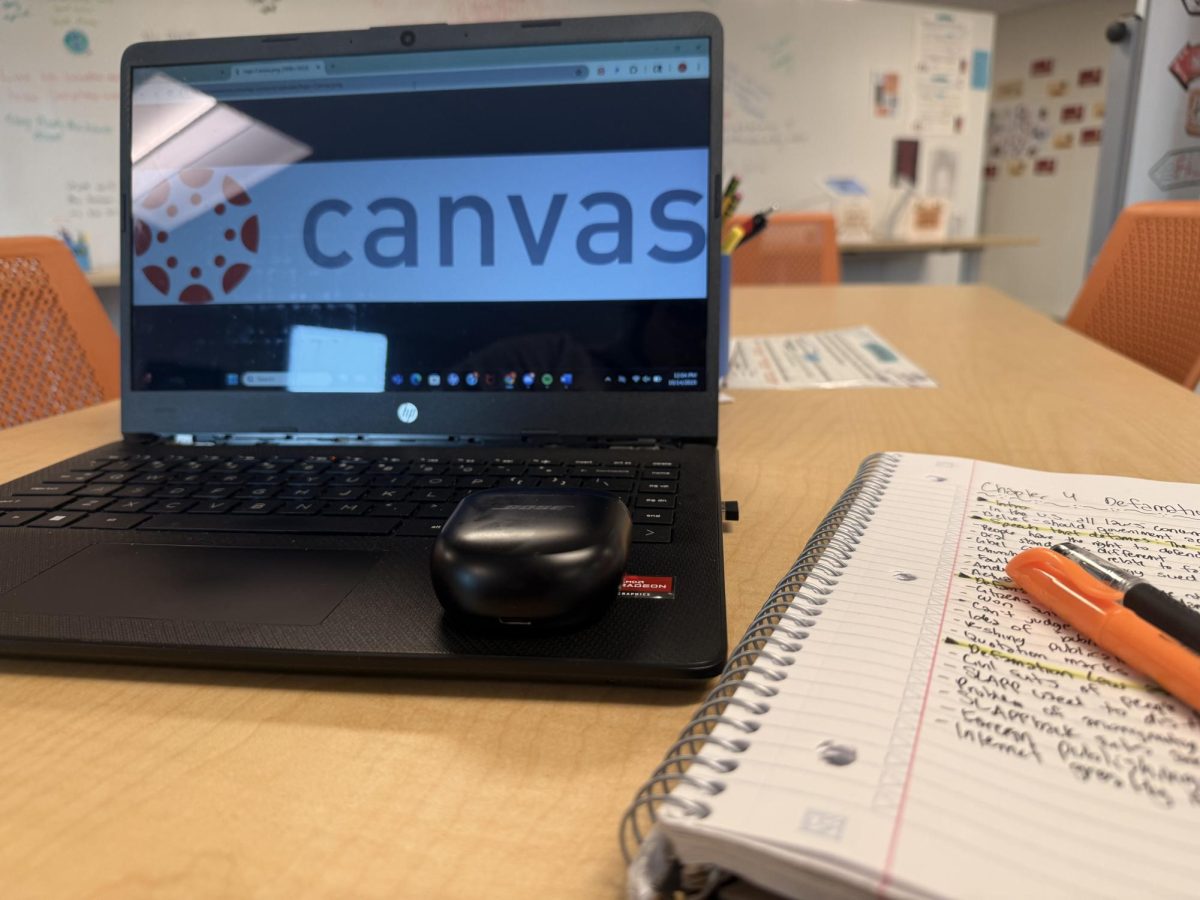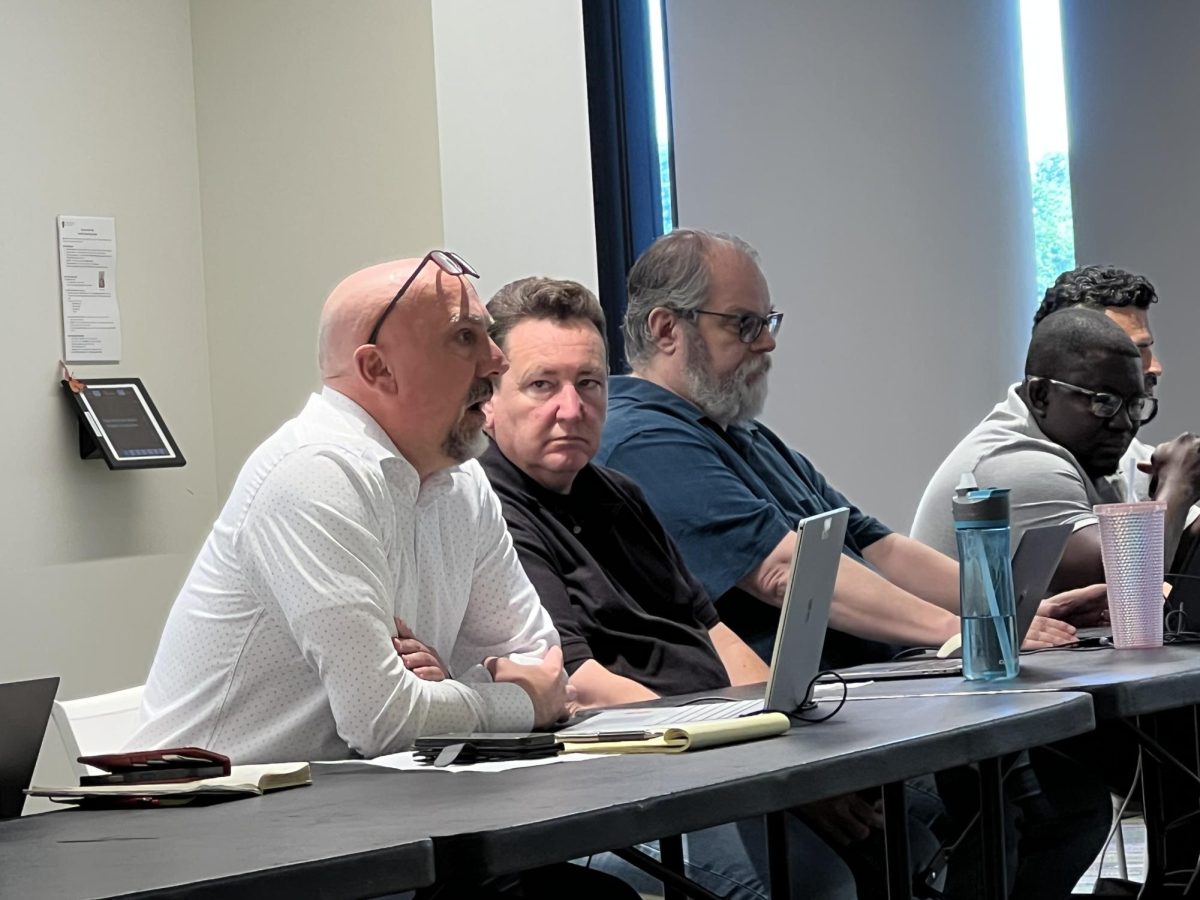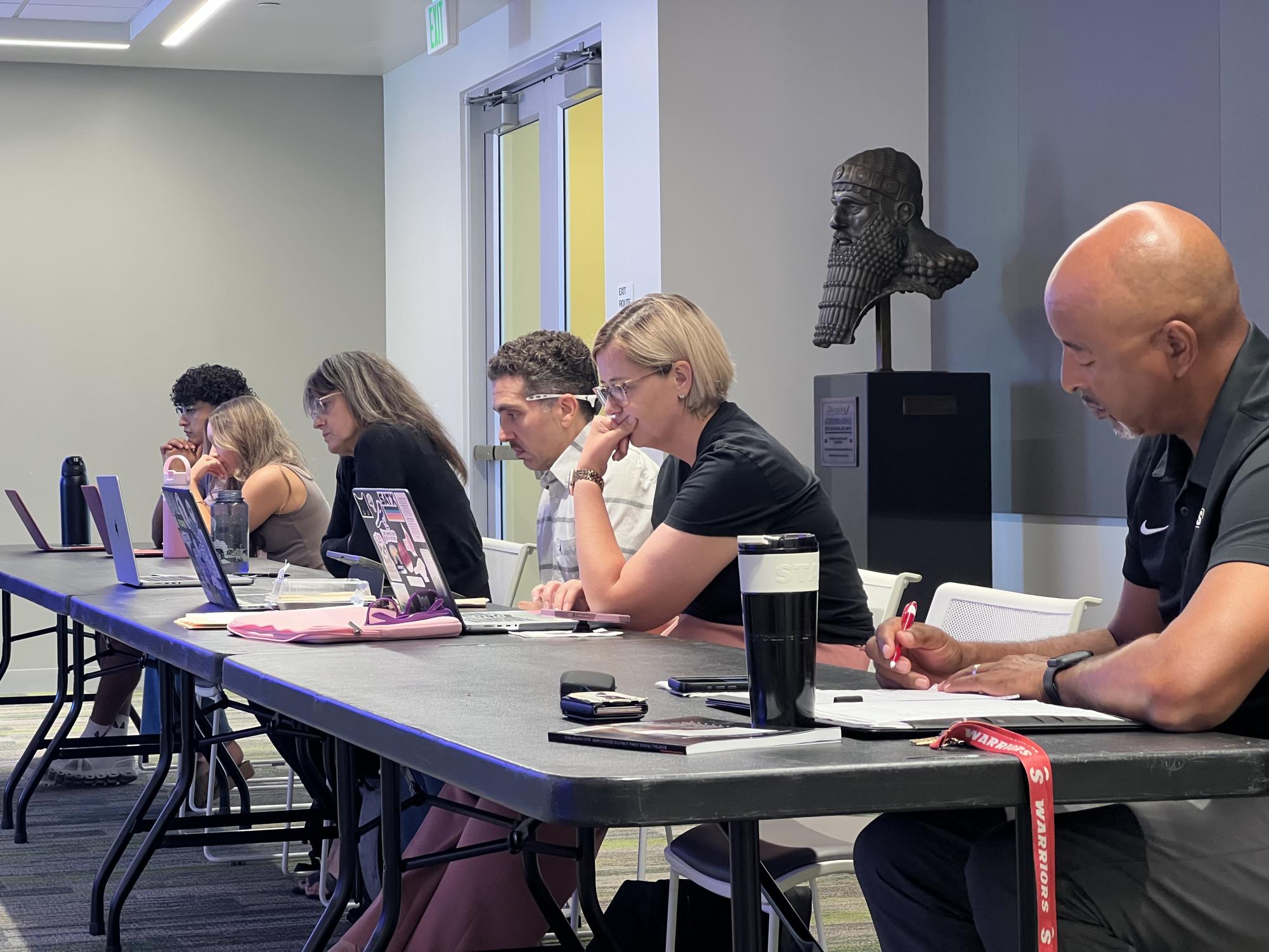
The Academic Senate meeting this week moved past debates over Zoom cameras, and turned its attention to new challenges: the proposed STANBooks textbook rental program, concerns about faculty visa costs and updates on the University’s structural deficit.
Beginning in spring 2026, Stan State plans to roll out STANBooks, a system that charges students $20 per unit in exchange for textbook rentals. For a full-time student taking 12 units, that would mean $240 per semester.
The program will automatically enroll students unless they opt-out, a policy that drew criticism from several senators.
“OPT-OUT program reeks of taking advantage of students who do not know,” Senator David Martin stated.
Martin continued to elaborate about his dislike for the program, even talking about how faculty can take advantage of this to ensure students get the best for their buck.
“Let’s go for the most useful book, even if it’s 500 dollars, because then they can take advantage of this. As faculty, we can decide to bankrupt the system by requiring the most expensive textbooks,” he stated.
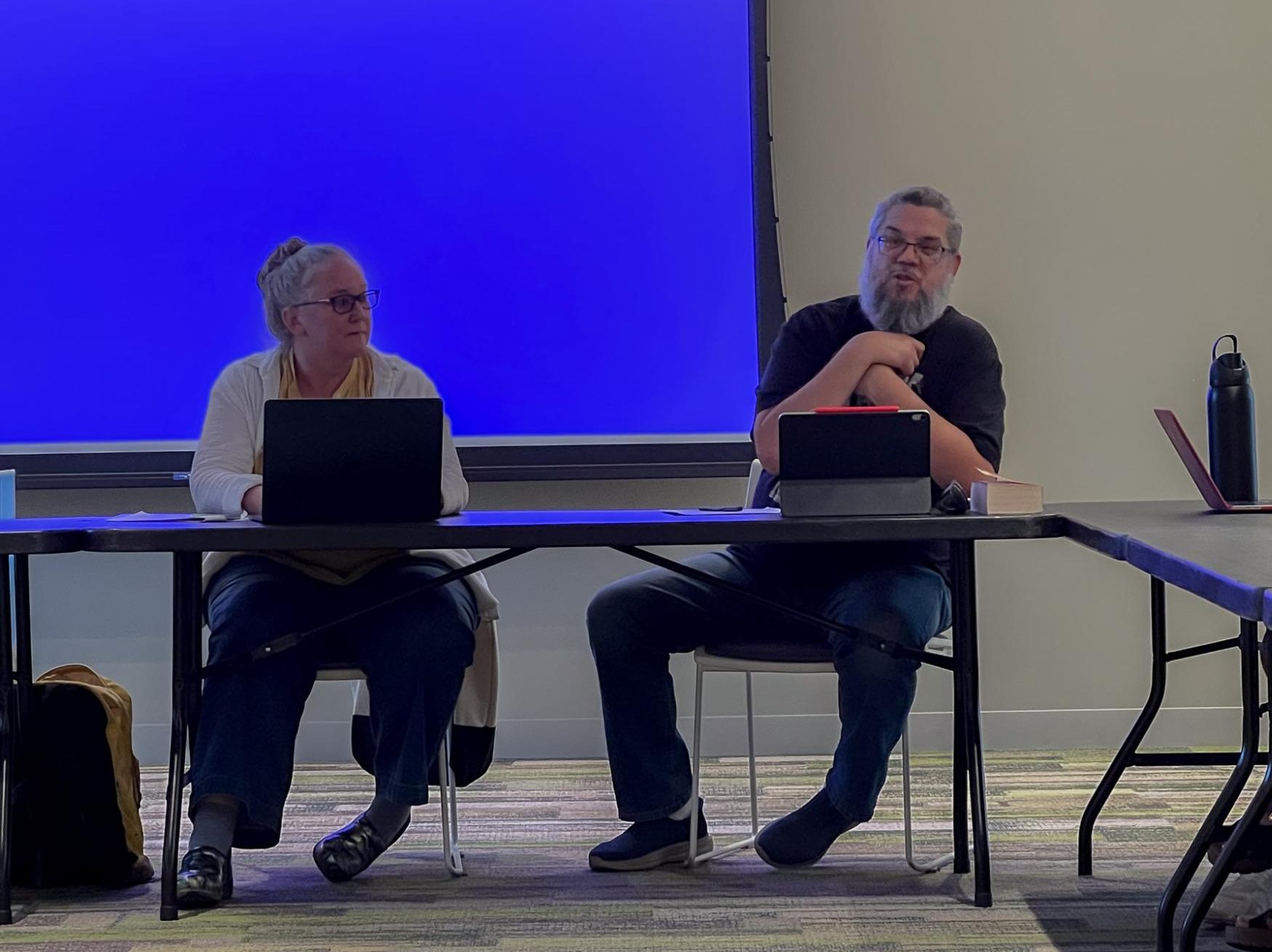
Senator Jori Lindley talked about a short survey she gave to students in her class. She surveyed 9 students and found on average they spent 5 dollars a credit instead of 20 dollars a credit.
Speaker of the Faculty Arya Alami also shared his thoughts on this, “I personally feel this is a way to subsidize some majors in textbooks to have other majors for it.”
As senators spoke back and forth about their grievances and concerns about this new program, ASI President Eryka Lepper broke the news to the Senate that this program will require the textbooks on the syllabus to be required for this new service to give students access.
In response Alami stated, “They are dictating how we set our syllabi.”
The consensus of the Senate is that they do not like it being an opt-out program, and believe instead it should be an opt-in program.
CFA Chair David Colnic gave his report and discussed the need to further investigate President Trump’s new executive order that changed H1-B visa fees to $100,000. He brought up the question as to what the campus should do if faculty members who have to pay the fine return to work.
He urges the school to further investigate the accuracy of reports stating that this new executive order will only be applicable to new visa applicants, as he believes it may not be the case, and that it could affect current visa holders.
“We have to collectively solve problems,” Colnic stated.
Chairperson Eric Conrad of Academic Technology and Learning Committee (ATLC) reported that there is currently a student laptop rental pool. In order for students to rent a laptop from the school they must be registered in classes, but there is currently a waitlist.
Also there are single day rental laptops currently available. ATLC is also discussing wearable tech such as Meta AI glasses and the implications that comes with students recording lectures or exams.
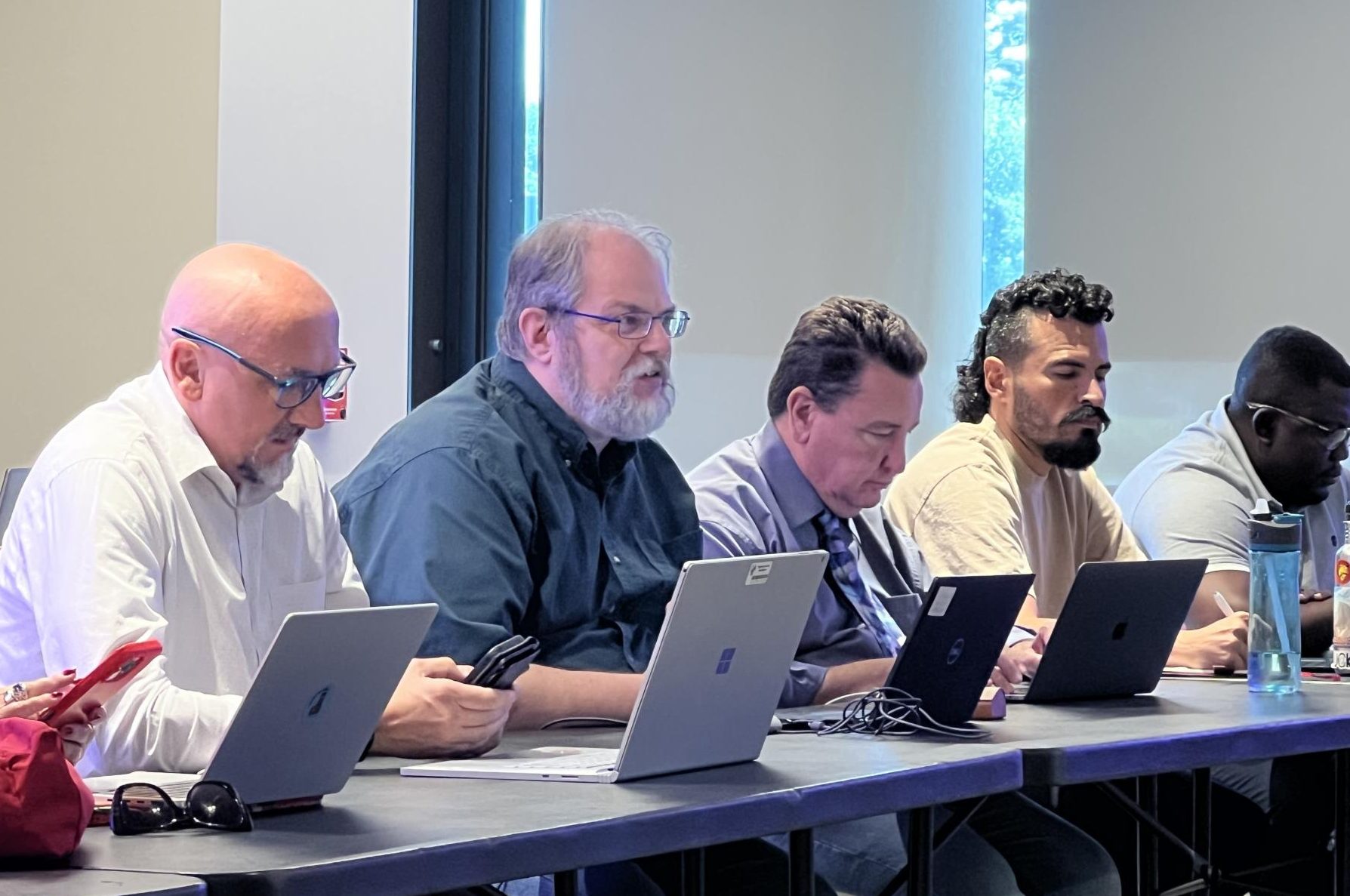
John Brandt of Faculty Budget Advisory Committee (FBAC) reported an update on the structural deficit and discussed possible sources to help cover the 25/26 deficit.
$6.3 million structural deficit after cuts and new state reduction. FBAC is considering taking loans from the Student Health Program and the Rec Center of about $3 million each to help offset the deficit for the year without needing to make any other cuts.
FBAC is also discussing taking money from the University cash reserves between $7-9 million, to help cover the deficit while also keeping one month of salary in cash on hand.
If no additional cuts are made this year, officials expect next year’s deficit to remain about the same.
Lepper announced ASI has three vacancies open that need to be filled. Director for Sustainability, Director for Stockton Campus and Director for College of Education, Kinesiology, and Social Work.
Students that are interested in joining ASI in one of these roles can apply here.



